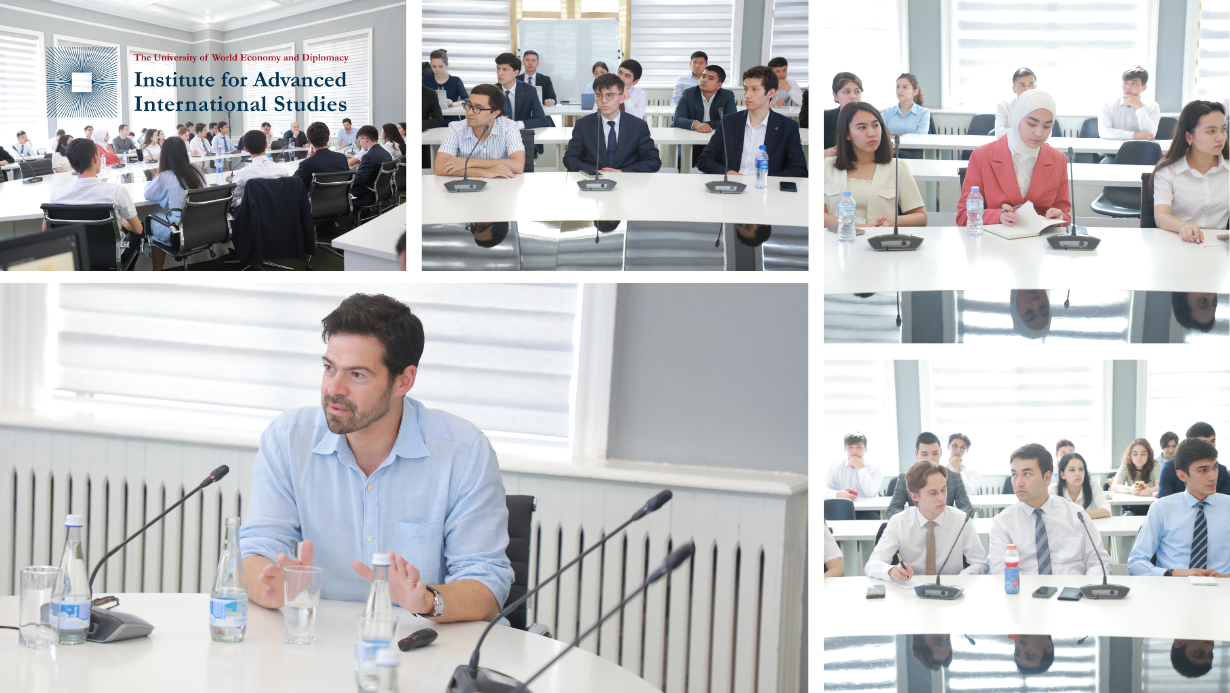
Tashkent, May 17, 2024 - The University of World Economy hosted an open lecture by Professor Artemy Kalinovsky from Temple University on the topic “Socialism, neoliberalism and the development of Central Asian countries: discussions on economic development paradigms”. The event commenced with an opening statement Akram Umarov, The first vice-rector of UWED. In the first part of his talk, Professor Kalinovsky reviewed the work of scholars such as Amy S. Offner and Melinda Cooper, and noted that the ideas of neoliberalism and individualism are often shaped by family values and solidarity. He emphasized that economics is deeply intertwined with politics, illustrating his point with references to of the two world wars of the 20th century. He emphasized that economics has its own history, closely connected with politics, and cited the example of two world wars of the 20th century, as they had a significant impact on the national economies of the world. World War I led to higher taxes, inflation, and economic decline by funding military spending and disrupting trade, while World War II caused even more damage by destroying infrastructure and redistributing resources. However, the wars also accelerated technological development, so post-war reconstruction contributed to rapid economic growth.In the second part, Kalinowski explained the concept of neoliberalism in the context of the welfare state, especially in the United States, and discussed its origins and proliferation.
The final part focused on the development of Central Asian countries, examining the region as a source of neoliberalism’s emergence. As part of the discussion, students asked questions about the development and formation of neoliberalism in Uzbekistan. Professor Kalinovsky noted that Uzbekistan, like the whole of Central Asia, is already involved in the process of neoliberalism, and this trend will only intensify in the future. The lecture was an important event, enhancing the understanding of key economic and political trends in Central Asia. It underscored the importance of international knowledge exchange for the region’s continued development.